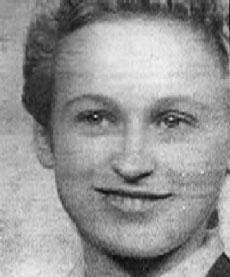Éva Wimmer
Born: June 23, 1927, Budapest, Hungary
Éva Wimmer (née Éva Bihari) was born in 1927 in Budapest into a Catholic family. Her father was an electrical engineer and worked in different parts of the world while her mother raised Éva and her brother, Józsi. Her mother was an open-minded, humanistic spirit, which impacted and influenced Éva for her whole life. "In a human being human dignity is the most important, it is more important than life,” Éva said as a summary of her mother's philosophy. Her brother was working for the Swedish Red Cross and was killed by the Nazis.
Éva herself started working for the Swedish Red Cross at the end of September 1944 and then upon the recommendation of Valdemar Langlet, and because of her excellent knowledge of German language, she became the interpreter and aid to Raoul Wallenberg. She was the translator during discussions about the establishment of the protected houses between Wallenberg and influential people including Ferenc Szálasi and Minister of Internal Affairs, Gábor Vajna. Éva participated in the rescue activities, helping the people living in protected houses and rescuing people from the death marches on the road.
After the war Éva studied law, diplomacy, economics and international business. She participated as a witness in the Szálasi trial in the autumn of 1945 based on the meetings and discussions with Wallenberg. Later she became a Board Member of the Wallenberg Association and her main task was to talk to young people. She married young, got a divorce after the war and remarried again. Her second husband was a childhood friend who had just returned from forced labor. They had a son who went on to pass stories of his mother and her work on to the next generation.


